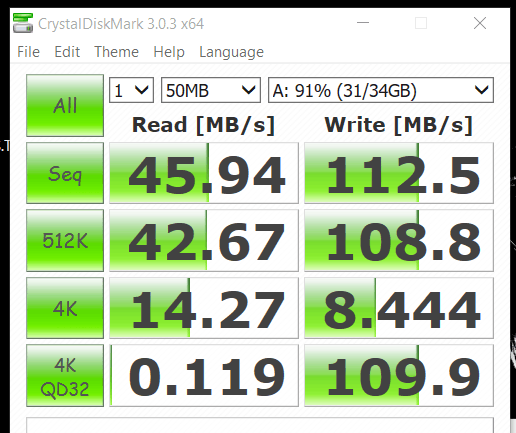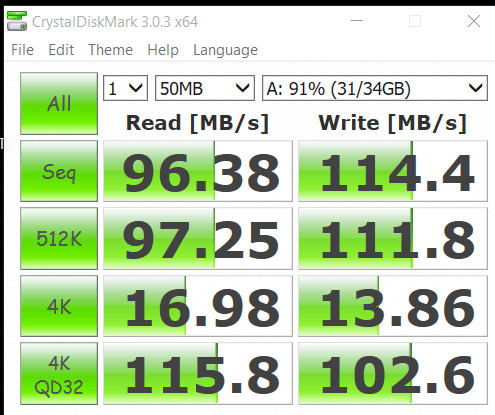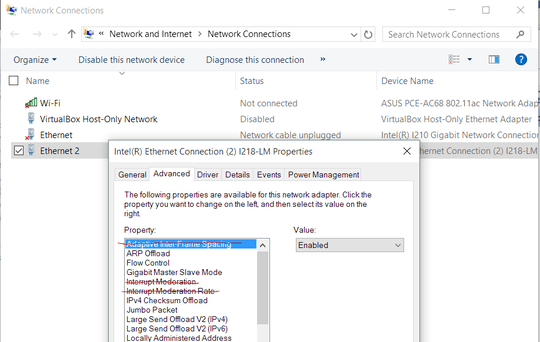0
At home, a native windows-shares client on Windows 7 and Windows 10 is performing poorly. It is connected to a Samba server through a gigabit switch. The read-rate is at around 60 MB/s while writes to the server acheive an acceptable throughput of 114 MB/s.
The theoretical maximum is 125 MB/s (1000 Mbit / 8 bytes) and the suboptimal read-performance has been bothering me for a long time.
The setup is as follows:
Client: Server:
- Windows 10 - Linux 4.1.12
- Ethernet: Intel I218-LM (gigabit) - Ethernet: Realtek RTL8111/8168/8411
- Samba 3.6.25
Switch:
- Cheap but solid 8-port gigabit switch by Netgear (2007)
While trying to resolve this, one may find dated suggestions online about tweaking the samba server. I found that changing the socket options and read and write parameters had no noticable improvement:
/etc/samba/smb.conf
; useless tweaks for a home network 2014-2015. oversized buffers do not help...
[global]
read size = 365536
read prediction = true
socket options = IPTOS_LOWDELAY TCP_NODELAY SO_RCVBUF=158192 SO_SNDBUF=158192
write raw = yes
read raw = yes
Benchmarking the network throughput with iperf (cygwin) yielded aproximately 930 Mbit/s. Sadly, the network-performance (task manager) never indicates link saturation above 560 MBit while CrystalDiskMark is reading from the mounted network share.
As a last attempt to pin the issue, I booted Knoppix on the Windows-client machine to mount and benchmarked the share:
mount -o user=foo //192.168.1.3/data /mnt/remote
iozone -o -r 4m -s 1200mb -i{0,1}
This produced results close to the physical limit. Do you have any suggestions for troubleshooting this issue?


